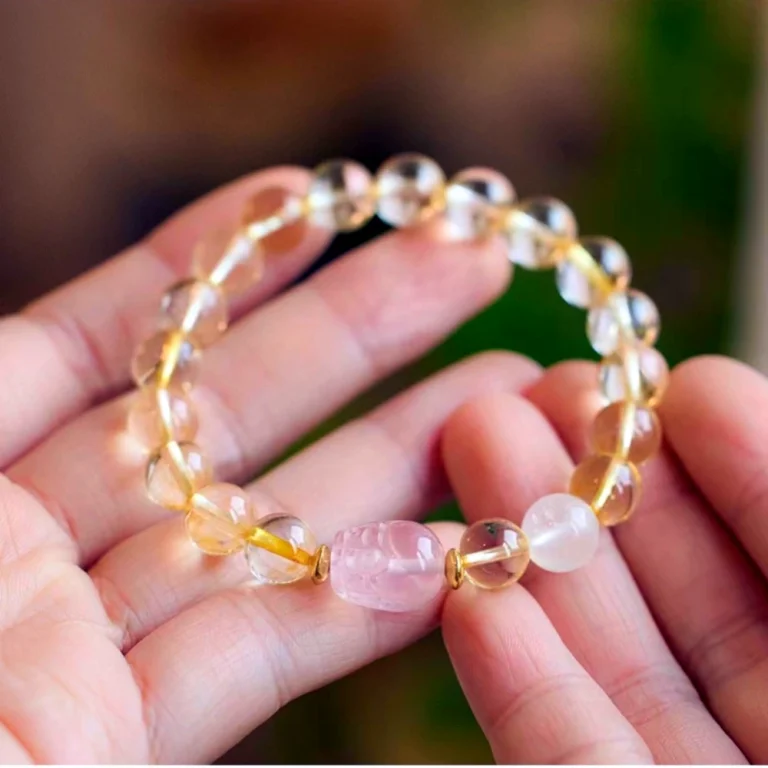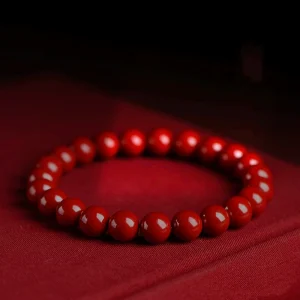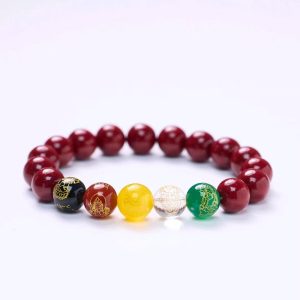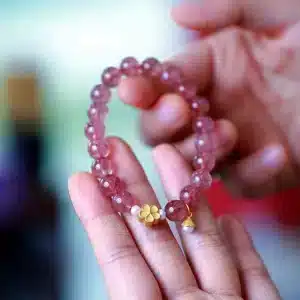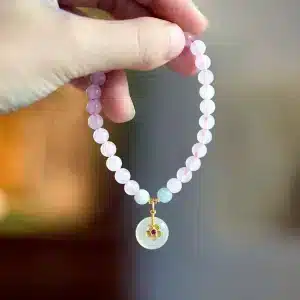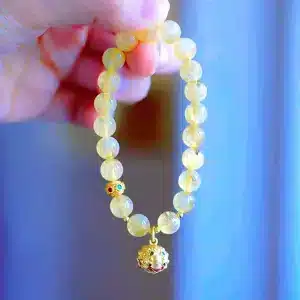Is There Any Science Behind Feng Shui?
- Last updated July 29, 2024
- Written by Serestone

Feng Shui, an ancient Chinese practice, aims to harmonize individuals with their surrounding environment through the strategic arrangement of space and objects. Rooted in the philosophy of Qi (energy flow) and the balance of Yin and Yang, Feng Shui has intrigued people globally. But does Feng Shui have a scientific basis? This post explores the science behind Feng Shui, drawing insights from the Ultimate Guide to Feng Shui Bracelets: Enhance Your Energy and Harmony.
The Fundamentals of Feng Shui
Feng Shui, translating to “wind-water,” is based on the belief that the arrangement of our environment impacts our well-being, success, and happiness. The core components of Feng Shui include the Bagua Map, the Five Elements (Wood, Fire, Earth, Metal, Water), and the balance of Yin and Yang. These principles aim to create spaces that allow for the free flow of Qi and promote harmony.If you want to know more about Feng Shui, you can read What does feng shui literally mean? and What is the Rule of Feng Shui?
Scientific Perspectives on Feng Shui
Environmental Psychology
Impact of Environment on Behavior
- Behavioral Influence: Environmental psychology examines how physical spaces influence our behavior and mental states. Feng Shui’s emphasis on harmony and balance aligns with environmental psychology’s focus on creating environments that positively affect human well-being.
- Mood and Productivity: Studies have shown that well-designed spaces can enhance mood, increase productivity, and reduce stress. Feng Shui principles, such as arranging furniture to promote a smooth flow of energy, can lead to more organized, pleasant, and functional spaces.
Spatial Arrangement
- Pathways and Flow: Feng Shui emphasizes the importance of unobstructed pathways to allow the free flow of Qi. Environmental psychology supports this idea by showing that clear, navigable spaces reduce stress and improve movement efficiency.
- Room Layout: Proper room layout can significantly impact how individuals feel and behave in a space. For instance, an open, uncluttered layout can promote feelings of relaxation and openness, which is a core tenet of Feng Shui.
Placebo Effect
Belief and Intention
- Psychological Influence: The placebo effect highlights the power of belief in creating real, positive outcomes. In Feng Shui, the belief that certain arrangements bring good fortune or health can lead to genuine improvements in well-being.
- Sense of Control: Feng Shui involves active participation in organizing one’s environment, which can foster a sense of control and empowerment. This act of taking control can alleviate anxiety and contribute to mental health improvements.
Psychological Benefits
- Stress Reduction: By decluttering and organizing spaces, individuals may experience reduced stress and increased mental clarity. Feng Shui’s recommendation to maintain clean, orderly spaces aligns with this psychological benefit.
- Positive Environment: The intentional design of a space to be aesthetically pleasing and functionally supportive can enhance overall happiness and life satisfaction, reinforcing the positive impact of Feng Shui principles.
Biophilic Design
Connection to Nature
- Natural Elements: Biophilic design focuses on incorporating natural elements into built environments, which has been shown to reduce stress and improve well-being. Feng Shui also emphasizes the inclusion of natural elements, such as plants and water features, to enhance the flow of Qi.
- Nature and Health: Studies have found that exposure to nature and natural materials can lower blood pressure, reduce stress hormones, and improve mood, which supports the Feng Shui practice of integrating nature into living spaces.
Natural Materials
- Holistic Integration: Feng Shui’s use of natural materials (like wood and stone) complements biophilic design principles, promoting a sense of connection to the natural world. This integration can lead to a healthier, more balanced living environment.
- Aesthetic Appeal: Natural materials often have aesthetic qualities that contribute to a calming and pleasing environment, aligning with Feng Shui’s goal of creating harmonious and balanced spaces.
Scientific Studies and Findings
Clutter and Mental Health
Impact of Clutter
- Stress and Anxiety: Research has shown that cluttered environments can lead to increased levels of stress and anxiety. This is because clutter can overwhelm the brain and make it harder to focus, leading to feelings of chaos and helplessness.
- Productivity: Clutter can also negatively impact productivity by making it more difficult to find necessary items and creating visual distractions. Feng Shui’s emphasis on maintaining clutter-free spaces is supported by these findings, as organized spaces promote mental clarity and efficiency.
Organization and Well-Being
- Mental Health: Organized spaces are linked to better mental health outcomes. Studies indicate that individuals who maintain tidy environments experience lower levels of depression and anxiety.
- Physical Health: Clutter-free environments can also contribute to better physical health by reducing the risk of accidents and making it easier to maintain cleanliness and hygiene.
Lighting and Mood
Natural Light
- Mood Enhancement: Natural light has been shown to boost mood and energy levels by regulating circadian rhythms and increasing the production of serotonin, a neurotransmitter associated with well-being.
- Energy and Productivity: Exposure to natural light during the day can enhance energy levels and improve productivity, supporting Feng Shui’s recommendation to maximize natural light in living and working spaces.
Artificial Lighting
- Quality of Light: The quality and color temperature of artificial lighting can also impact mood and performance. Warm, soft lighting is generally more relaxing, while bright, cool lighting can enhance focus and alertness.
- Lighting Design: Feng Shui’s attention to balanced lighting is validated by studies showing that well-designed lighting systems contribute to a positive, productive environment.
Spatial Organization
Functionality and Comfort
- Control and Security: Proper spatial organization, such as placing key furniture in commanding positions (where one can see the entrance but is not directly in line with it), can provide a sense of control and security. This arrangement can reduce anxiety and create a more comfortable and supportive environment.
- Ergonomics: Ergonomic design principles, which focus on creating environments that support physical health and comfort, align with Feng Shui’s emphasis on functional and supportive spatial arrangements.
Furniture Placement
- Movement and Accessibility: Strategic furniture placement that allows for easy movement and accessibility can enhance the flow of energy and create a more functional and enjoyable space. This supports the Feng Shui principle of unobstructed pathways and open layouts.
- Aesthetic Balance: Balancing furniture placement to create a harmonious and aesthetically pleasing environment can improve overall satisfaction with the space and promote a sense of well-being.
Integrative Approaches
Design Psychology
- Blending Traditions and Modern Science: Modern design psychology incorporates elements of Feng Shui to create environments that are both aesthetically pleasing and psychologically beneficial. This integrative approach leverages the strengths of both traditional and contemporary practices.
- Functional Aesthetics: Combining Feng Shui principles with modern design techniques results in spaces that are functional, beautiful, and conducive to positive energy flow.
Holistic Health and Wellness
- Mind-Body Connection: Holistic health approaches recognize the interconnectedness of mind, body, and environment. Feng Shui’s focus on harmonizing living spaces complements holistic practices that aim to balance and nurture all aspects of well-being.
- Complementary Practices: Feng Shui can be integrated with other wellness practices, such as mindfulness, meditation, and aromatherapy, to create a comprehensive approach to health and harmony.

Practical Applications
Home Environment
- Clutter-Free Spaces: Maintaining clutter-free spaces enhances the flow of Qi, promoting a sense of peace and order.
- Balanced Decor: Using colors, shapes, and materials that balance the five elements can create a harmonious atmosphere.
- Commanding Position: Placing your bed, desk, and stove in the Commanding Position fosters a sense of control and security.
Work Environment
- Productivity and Focus: Arranging your workspace according to Feng Shui principles can boost productivity and focus. For example, positioning your desk to face the door (but not directly in line with it) can enhance your sense of authority.
- Enhanced Relationships: Applying the Bagua Map to your office can help improve relationships with colleagues and superiors by enhancing specific areas like wealth and helpful people.
Feng Shui Bracelets
- Personal Energy: Wearing Feng Shui bracelets can help balance personal energy and attract specific outcomes. For instance, bracelets with jade or amethyst stones can promote wealth and calmness, respectively.
- Intention and Focus: The act of choosing and wearing a Feng Shui bracelet can serve as a reminder of your intentions and goals, reinforcing positive energy.
Conclusion
While Feng Shui’s metaphysical aspects remain difficult to scientifically validate, its principles align with many findings in environmental psychology and design. The psychological and environmental benefits of organized, well-lit, and aesthetically pleasing spaces are well-supported by scientific research. By understanding and integrating these principles, individuals can create balanced, harmonious environments that enhance well-being and support personal and professional goals. For more detailed guidance on specific applications, such as the use of Feng Shui bracelets, refer to the Ultimate Guide to Feng Shui Bracelets: Enhance Your Energy and Harmony. Integrating these principles into your daily life can help you achieve a serene and organized living space that nurtures your mind, body, and spirit.
More Posts
Related products



